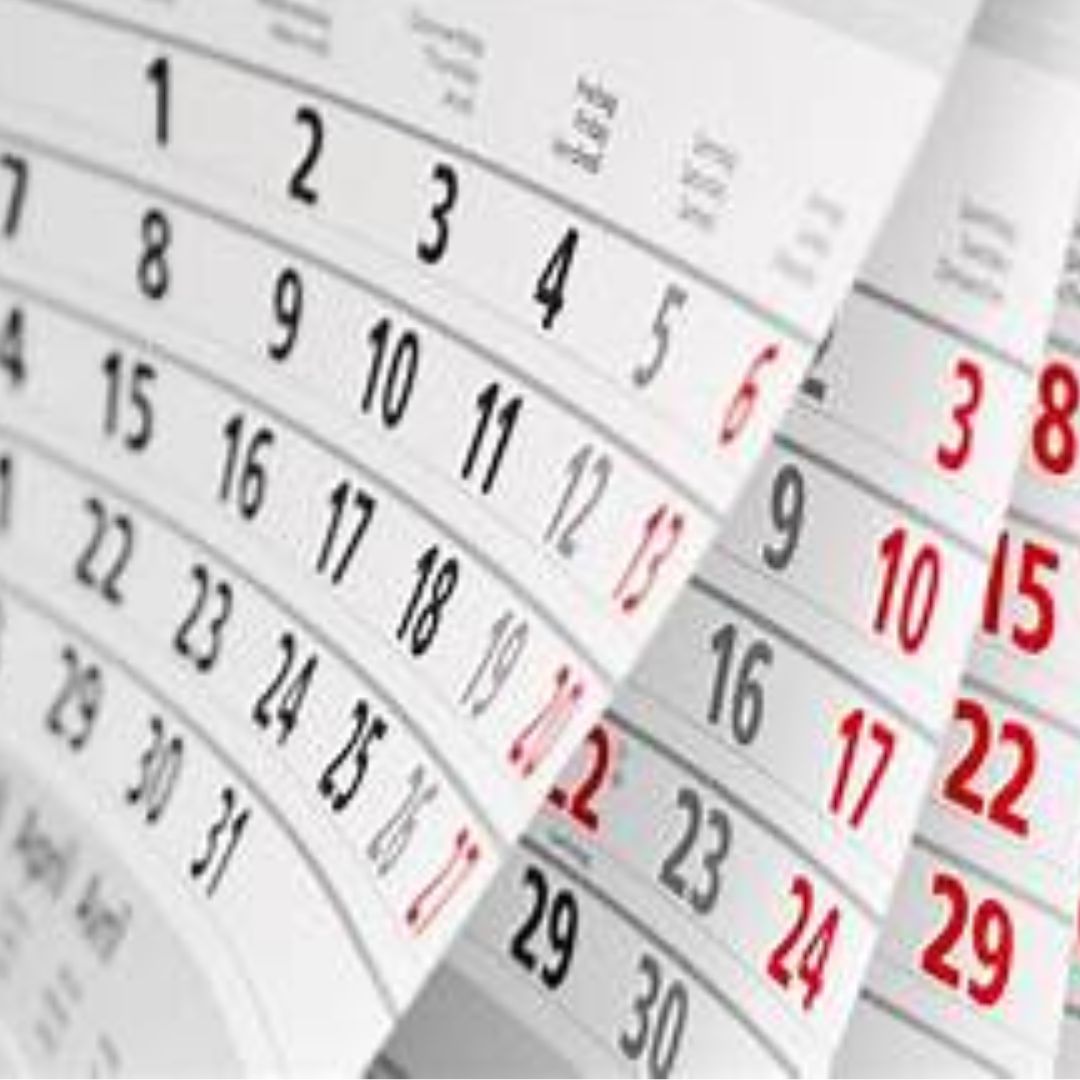
Using a Calendar: Making a Decision to Buy an Ivriy American Calendar
Share
Using a calendar is a practical and essential tool for organizing your time, managing your commitments, and staying on top of your daily life. Here's how and why you should use a calendar:
How to Use a Calendar:
1. Choose a Calendar System: You can use physical paper calendars, digital calendars on your computer or smartphone, or a combination of both. Select a system that suits your preferences and lifestyle.
2. Record Appointments and Events: Write down or input all your appointments, events, and commitments. This includes work meetings, social gatherings, medical appointments, school assignments, and more.
3. Set Reminders: Many digital calendars allow you to set reminders or notifications for upcoming events. These reminders can help you prepare and avoid missing important appointments.
4. Prioritize and Schedule Tasks: Allocate time for tasks and activities, not just appointments. This includes time for work, study, exercise, household chores, and personal projects.
5. Block Off Time: Designate blocks of time for specific activities or focus periods. This can help you create a structured daily routine and improve time management.
6. Categorize Events: Use color-coding or categories to distinguish different types of events or commitments. For example, you might use one color for work-related activities and another for personal events.
7. Include Travel Time: When scheduling appointments or events, consider the time it takes to travel to and from the location. Ensure that you allow enough time for transit.
8. Review and Update Regularly: Periodically review your calendar to ensure it's up to date. Remove completed tasks or events and add new ones as they arise.
9. Share with Others: If you have shared commitments with family, friends, or colleagues, consider sharing your calendar or specific events with them. This can help with coordination.
Why Use a Calendar:
1. Time Management: A calendar helps you manage your time effectively, ensuring that you allocate your hours to important tasks and commitments.
2. Organization: It provides a structured way to keep track of your schedule, making it easier to stay organized and avoid double-booking or missing appointments.
3. Prioritization: Using a calendar allows you to prioritize your tasks and focus on what's most important, reducing stress and increasing productivity.
4. Avoid Overcommitment: A calendar helps you see your existing commitments and prevent overloading your schedule with too many tasks or events.
5. Goal Setting: You can use a calendar to set and track progress toward personal and professional goals. It provides a visual representation of your progress.
6. Reduce Stress: By planning and scheduling tasks in advance, you can reduce the stress and anxiety associated with last-minute planning or forgotten commitments.
7. Improved Communication: Sharing your calendar with others, such as family members or colleagues, enhances communication and coordination, reducing conflicts and misunderstandings.
8. Flexibility: While a calendar provides structure, it also allows you to adapt and make changes as needed, providing both structure and flexibility in your life.
Using a calendar is a valuable tool for managing your time and achieving your goals. Whether for personal, academic, or professional use, it helps you stay organized and make the most of your days.
The decision to buy a specific calendar, such as the Ivriy American Calendar or any other type, depends on your individual needs, preferences, and beliefs. If you are considering purchasing our particular calendar, here are some reasons why you might choose to do so:
1. Alignment with Beliefs: Our calendar aligns with your religious or spiritual beliefs, and if you wish to use it for tracking significant religious or cultural events, it makes sense to buy it.
2. Historical or Educational Interest: Some people buy our specialized calendars because they are aligned with nature, seasons, and the Enoch calendar out of historical or educational interest. It can be a valuable tool for learning about ancient calendrical systems and traditions.
3. Specific Calendrical Features: Our calendar offers unique features, such as a different method of tracking time, incorporating lunar or solar cycles, and focused celestial events, it is very appealing to those interested in such features.
4. Cultural Identity: For individuals or groups who view our calendar as a way to emphasize their cultural or religious identity, purchasing and using it can be a meaningful choice.
5. Alternative Calendar Systems: Some people prefer to use alternative calendar systems for personal or religious reasons, and purchasing a specific calendar can support this choice.
6. Religious Observance: If you believe in scripture our calendar is essential for determining the timing of religious observances, such as holidays or rituals, acquiring our calendar is a practical step to ensure accurate timing.
7. Collectibility or Aesthetics: Our calendars are sought after for their artistic or collectible qualities. If you appreciate the visual design or collectible aspects of a specific calendar, it may be a motivation for purchasing it.
8. Personal Connection: You may feel a personal connection to a specific calendar due to your family history, upbringing, or personal experiences. This emotional connection can be a strong motivator for buying and using our particular calendar.
9. Support for a Cause or Organization: Our calendars are produced as fundraisers to continue our efforts in assisting you in your personal growth. Purchasing our calendars can be a way to support our cause.
10. Functional Use: Ultimately, many people buy our calendars for their practical use in organizing and managing their daily, weekly, or monthly schedules, events, and appointments.
When considering whether to buy an Ivriy American calendar, it's essential to weigh the above factors against your specific needs and preferences. Ultimately, the choice should align with your personal beliefs, values, and how you intend to use the calendar.
Committing to biblical feast days can be a meaningful and deeply spiritual practice for individuals who follow the Abrahamic religions, such as Judaism or Christianity. Here are some reasons why someone might choose to commit to these feast days:
1. Religious Significance: Biblical feast days are deeply rooted in religious traditions and carry significant spiritual meaning. They often commemorate important events in religious history and serve as reminders of God's faithfulness and promises.
2. Cultural and Historical Connection: Observing biblical feast days can help individuals connect with their cultural and historical heritage. These traditions have been passed down for generations and can provide a sense of continuity and identity.
3. Community and Family Bonding: Many biblical feast days are celebrated with family and community gatherings. This fosters a sense of togetherness and strengthens relationships within the faith community.
4. Spiritual Growth: Committing to the observance of these feast days can deepen one's faith and spirituality. They provide opportunities for reflection, prayer, and seeking a closer relationship with God.
5. Learning and Education: Each feast day often has its own unique customs, rituals, and stories. Observing them can be an educational experience, helping individuals learn more about their faith and its history.
6. Obedience to Religious Commandments: For some, observance of these feast days may be seen as a religious duty or commandment. In certain religious traditions, not observing these days can be considered a breach of faith.
7. Symbolism and Allegory: Some individuals may view biblical feast days as containing symbolic meanings and allegorical messages that are relevant to their spiritual journey and understanding of the faith.
8. Reflection and Renewal: These feast days can serve as times for self-examination, confession, and repentance. They offer an opportunity for renewal and a fresh start in one's faith.
9. Gratitude and Celebration: Many biblical feast days involve expressions of gratitude and celebration for the blessings and provisions of God. They are occasions for joy and thanksgiving.
10. Tradition and Legacy: Observing these feast days can be a way to honor the traditions and legacies of one's ancestors and the long history of the faith.
It's important to note that the specific reasons for committing to biblical feast days can vary depending on an individual's religious denomination, personal beliefs, and cultural context. Ultimately, the decision to observe these feast days should be a matter of personal conviction and faith.
The Book of Enoch, sometimes known as 1 Enoch or the Enoch calendar, is an ancient religious work attributed to Enoch, the great-grandfather of Noah. It contains various texts, including detailed astronomical and calendrical information. While the Enoch calendar is not officially recognized or widely used in the mainstream, some individuals and religious groups have chosen to follow it for various reasons. Here are some reasons why someone might choose to use the Enoch calendar:
1. Historical Interest: Some people are interested in the Enoch calendar as a historical document that provides insights into ancient Jewish and early Christian traditions. It offers a window into how people in antiquity understood timekeeping and celestial phenomena.
2. Religious or Spiritual Significance: For those who believe that the Enoch calendar holds spiritual or religious significance, its use can be a way to connect with the religious and spiritual traditions of the past. It may be seen as a way to honor the wisdom of Enoch and the early prophets.
3. Alternative Calendar System: Some individuals or religious groups prefer using the Enoch calendar as an alternative to the Gregorian calendar or other traditional calendars. They may believe that it more accurately reflects the biblical calendar as described in the Book of Enoch.
4. Alignment with Lunar and Solar Cycles: The Enoch calendar incorporates both lunar and solar cycles, and some people believe that it offers a more accurate way to determine religious observances, such as the timing of biblical feasts, based on celestial phenomena.
5. Cultural Identity: For certain religious or cultural groups, using the Enoch calendar can be a way to distinguish themselves and emphasize their unique religious or cultural identity.
6. Religious Observance: Those who believe that the Enoch calendar is the "true" biblical calendar may use it to determine the timing of religious observances, such as Sabbath days, festivals, or other significant events in their faith.
7. Personal Belief and Conviction: Ultimately, the decision to use the Enoch calendar is a matter of personal belief and conviction. Some individuals feel a strong personal connection to the calendar and its teachings, which can drive their decision to use it.
It's important to note that the Enoch calendar is not universally recognized or accepted within the mainstream. This is why our calendar is also aligned with the Gregorian calendar. So that all people, different people, religious denominations, and traditions could unite in one with our specific calendars and methods for determining religious observances. Remembering our calendar is a choice made by individuals or specific religious groups and may not be embraced by everyone within a particular faith.
